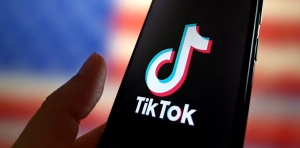Since its global debut in 2018, TikTok has become more than just a viral video-sharing app — it has revolutionized the entire social media landscape. Its influence stretches beyond Gen Z users and dance trends. From content creation to marketing, music, and even politics, TikTok has fundamentally changed how people interact, create, and consume online. Here is how did tiktok change social media.
A New Way of Creating and Consuming Content
TikTok introduced a fresh approach to video content. Unlike traditional platforms like Facebook or Instagram, which focused on curated photo feeds or long-form video, TikTok built its brand on short, engaging, and spontaneous videos. Its “For You Page” (FYP) algorithm quickly became the engine behind the platform’s meteoric rise — delivering highly personalized content that doesn’t rely solely on who you follow.
This shift toward interest-based rather than relationship-based content discovery has made TikTok addictive and exciting. It leveled the playing field, giving unknown creators a chance to go viral without needing a massive follower base. This has influenced other platforms like Instagram (Reels), YouTube (Shorts), and even Facebook to incorporate short-form video formats to stay relevant.
Redefining Virality and Influence
Before TikTok, going viral often required luck and a large audience. TikTok changed that. Its algorithm prioritizes creativity and engagement over follower count, allowing everyday users to become overnight sensations. This democratic approach to content has changed how people define influence. Micro-creators with small followings can now reach millions and spark global conversations with a single post.
In turn, brands have shifted their strategies. Instead of focusing solely on mega influencers, they now collaborate with smaller creators who have loyal niche audiences. TikTok’s content model has redefined influencer marketing, making authenticity and relatability more valuable than ever.
Music, Trends, and Cultural Shifts
TikTok has transformed the music industry by turning snippets of songs into viral anthems. Unknown tracks have topped global charts simply because they became background music for popular challenges or dance trends. Record labels and musicians now consider TikTok an essential platform for promoting new music.
Beyond music, TikTok has also shaped fashion, language, and culture. Memes, phrases, and styles born on the platform often spread rapidly across the internet, influencing pop culture at large. The app has created a space where users set trends rather than just follow them.
A Hub for Education, Advocacy, and Community
While often viewed as an entertainment platform, TikTok has become a source of education and social awareness. From financial literacy and DIY tips to health advice and political commentary, TikTok has proven its ability to inform and mobilize audiences. In recent years, users have organized protests, supported causes, and even influenced elections — all through short videos.
Also Read: How TikTok Has Affected the Music Industry
The platform’s comment sections, duets, and stitches foster conversation and community in ways that feel more intimate and participatory than other networks. It has empowered users to respond, remix, and engage with content directly, creating a more interactive and collaborative social space.
Changing the Social Media Business Model
TikTok’s business model and algorithm have pushed other platforms to rethink how they operate. As attention spans shrink and mobile-first usage rises, apps like Instagram and YouTube are investing heavily in short-form video to compete. TikTok’s ad products, such as branded effects and in-feed ads, have also prompted advertisers to get more creative and less polished — mirroring the raw, authentic feel that TikTok users love.
It has also encouraged a creator-first economy. With monetization tools like the Creator Fund and LIVE Gifts, TikTok provides more direct ways for users to earn a living, further professionalizing the creator space.





